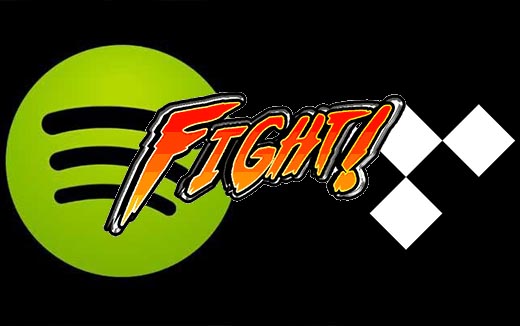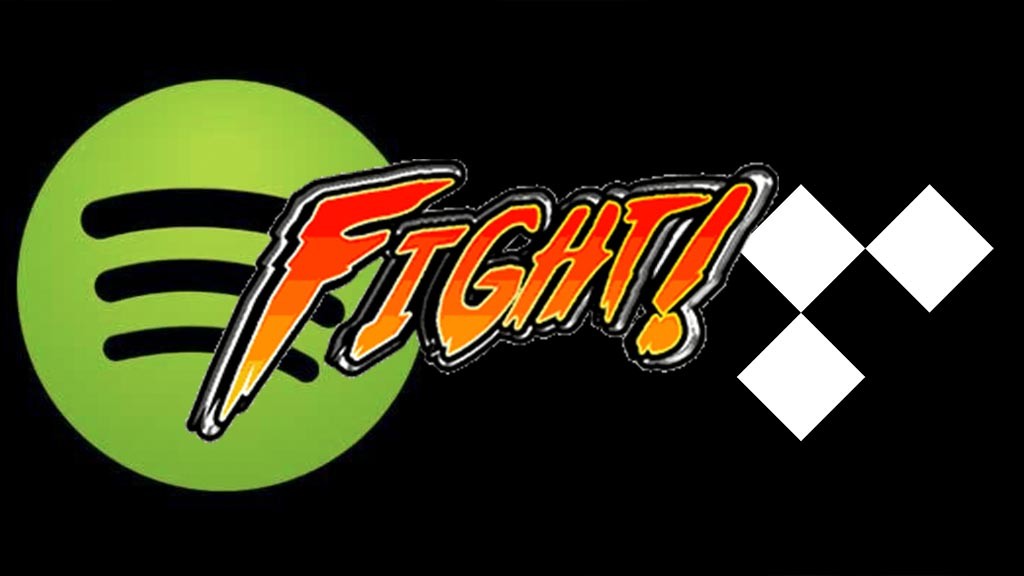Remember Napster? It was such a strange experience when it first came out. You’d spent most of your childhood listening to whatever tacky CDs your parents were into or my grand parents’ much cooler Pink Floyd vinyl collection. But downloading music form the internet? This was a whole new frontier all together. It was all sitting there in a folder on the desktop, hours and hours of new music for you to curate your own mix to. It was as legal as running over a nun with your car, but to any 11 year old who was obsessed with Rage and browsing CDs at Sanity it was a gift from above. Nowadays you’d be more inclined to procure my music legally, but more often than not it’s just a simple matter of opening up Spotify and streaming it.
The music streaming war continues to wage on with more and more parties after a slice of the pie.
Streaming has become the go-to device for listening to music. Sure pumping an old CD in the car or throwing a treasured vinyl on the record player is all good and fun, but you sure as hell can’t take your record player with you on your morning run. Streaming devices are bred for mobile devices. Digital is where it’s at, and for what it’s worth it’s pretty bloody awesome if you’re constantly devouring new tunes and curating playlists for yourself. There have been plenty of times a mediocre house party has been saved by somebody’s readymade party playlist streamed from their handy mobile telecommunications device. We live in a world that is constantly on the go and streaming services are the convenient way to soundtrack our lives. Even as this article is written the chief of Happy is bemoaning the expiration of his free premium Spotify account.
Of course it isn’t all puppies and rainbows. Just like early 20th century China, anyyone with deep enough pockets is looking to carve up the streaming market to make a tidy profit. And who wouldn’t? Just look at self-proclaimed businessman Jay Z, he and a couple of superstar mates have thrown their weight behind Tidal after buying out Swedish company Aspiro. Tidal is unique in the streaming world as it is the first service that is artist owned, and that its mission statement is ostensibly to “Restore the value to music by launching a service owned by artists“. Say what you will about it’s closed loop business model or the irony of millionaires claiming they’re here to fight for musicians who aren’t making money, but it’s a sign that streaming platforms are now approaching a point where it is set to completely dominate how we consume and interact with music.
Never the one to miss a chance to monopolise the digital market, heavyweights Apple have recently revealed their own streaming service Apple Music which is set to be launched on June 30. While you have to commend Apple on their ambitious new platform (which seeks not only to corner the streaming market but also digital radio) the launch hasn’t been without controversy with leaked contracts revealing independent artists will only receive 58% of royalties. Further more, artists will receive no royalties at all from free trial and comp accounts. It’s a pretty shitty deal, especially considering that it’s the indie artists who stand to benefit the most from streaming services. It’s not like Spotify are any better. Whilst they say 70% of royalties go back to artists, those royalties are based on subscriptions rather than plays and are doled out to more popular artists before trickling down to smaller ones, regardless of the band you’re listening to. You’d think Jay Z and his Merry Men would’ve swung in by now and given back to the poor.
It’s a stark reality and one that shows idealism is just that. Streaming services should be the way forward for developing artists rather than position them as footholds for more established acts with major label backing. We may cry foul as much as we like, but the truth is at the end of the day these services are just businesses trying to make a profit. For all we know each and every one of these people are genuine music lovers, but it’s not like a baker opens a bakery just for the love of baking croissants, people need to make a living too.
As the streaming war continues to heat up it remains doubtful that the situation will change. Soundcloud, which only recently has begin looking into a royalty system, is honestly the best place to stream music. While artists remain largely unpaid, it’s certainly more artist owned than Tidal, and is designed specifically to share new music. Just have a look at Happy’s Soundcloud page. Any kid making beats in their bedroom (90% of Soundcloud users) can garner hundreds, if not thousands of plays on Soundcloud. The exposure is massive and quite frankly is the closest thing we have to a digital music service that places all their users on equal footing.
Will we ever revert back to a world of CDs and Disc-mans? Maybe at a 90s themed party, but regardless of the nice and not so niceties music streaming is here to stay and is only going to become bigger and bolder.




